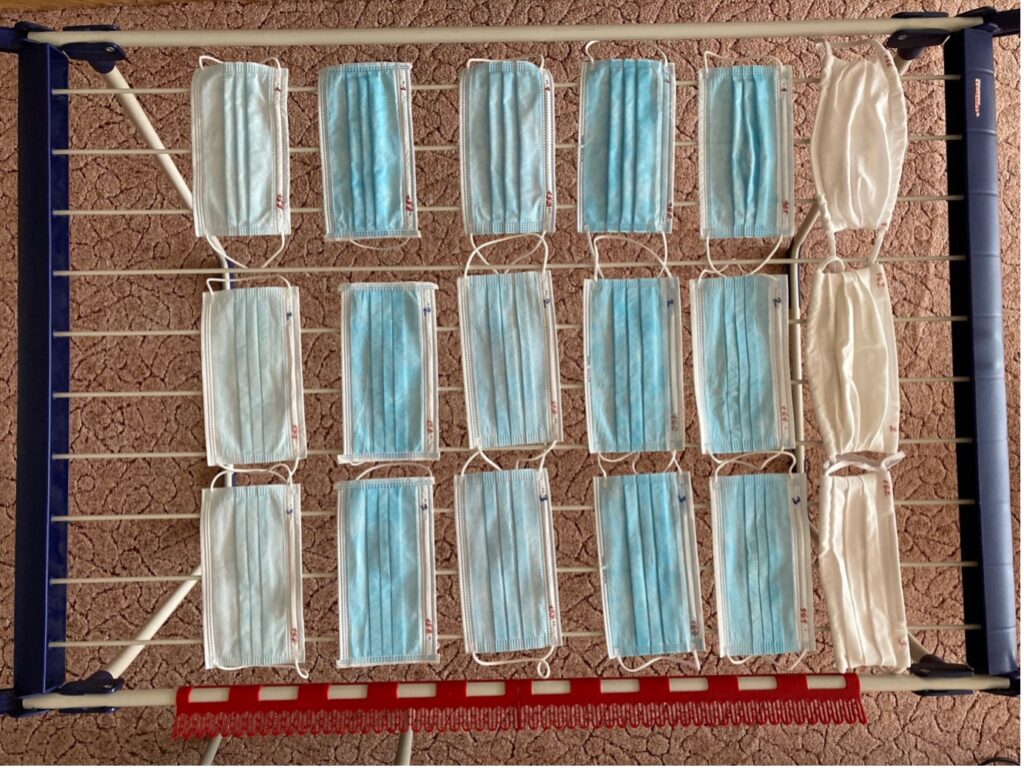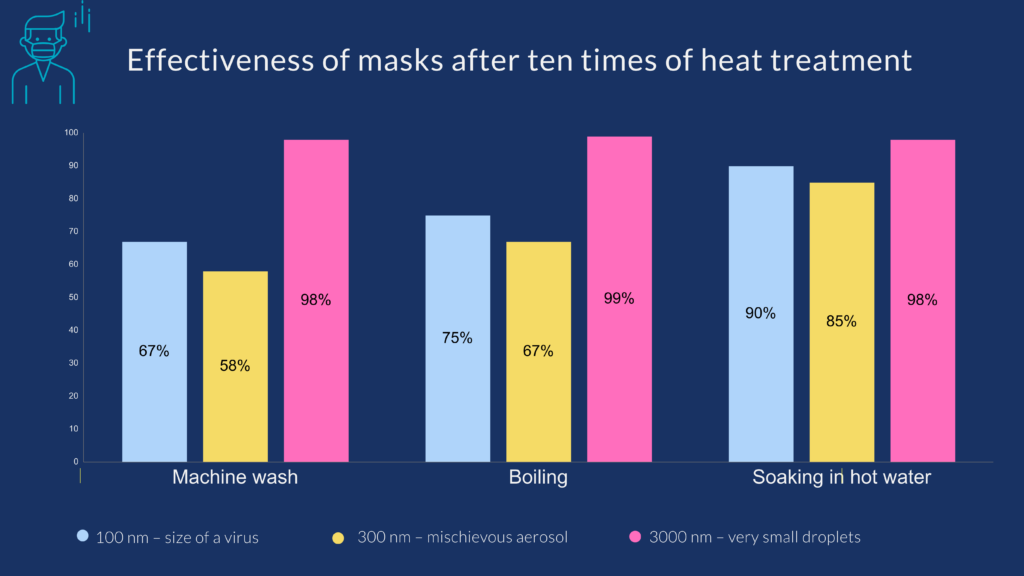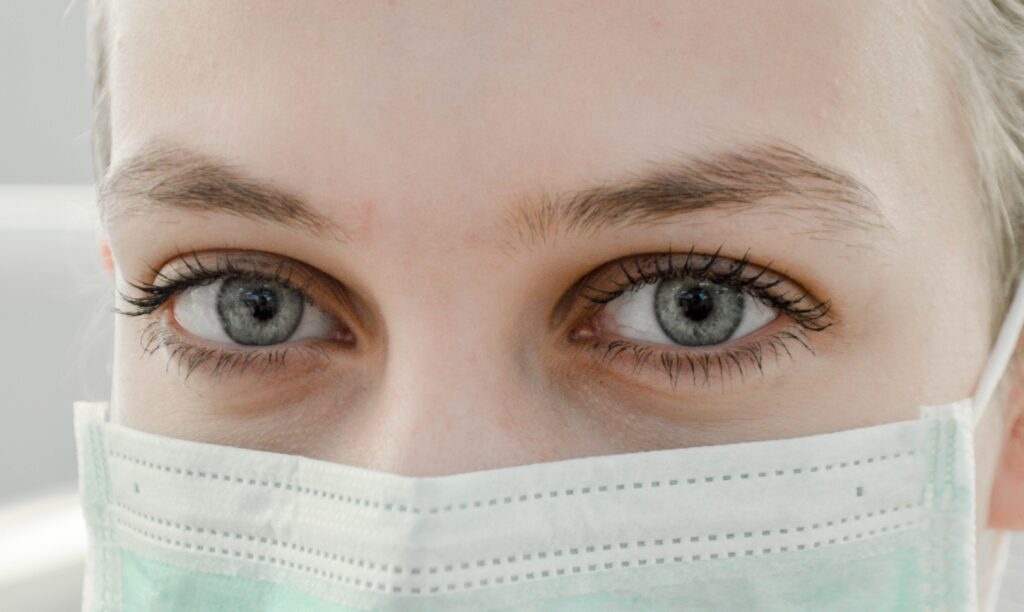Disposable face masks are a major cause of the large environmental footprint in the novel coronavirus crisis; a study by the Estonian University of Tartu researchers showed that these masks can, in fact, be repeatedly heat-treated before their efficiency starts to significantly decrease.
For the study, the researchers at the University of Tartu Institute of Physics conducted experiments with medical face masks of five manufacturers, trying to destroy the virus using three methods: machine washing the mask at 60°C (140°F), keeping the mask in boiling water for five minutes and keeping the mask in hot water for five minutes. Each method was applied ten times, and the masks were allowed to dry for 24 hours between each heat treatment. After ten times, the masks’ filtration efficiency and breathability were measured.
According to professor Heikki Junninen, the head of the Laboratory of Environmental Physics of the University of Tartu Institute of Physics, the results of the study show there is no reason to fear that the quality of masks would be significantly decreased by heat treatment.

There are roughly three types of face masks: personal protective equipment (subject to the strictest requirements), medical (“blue”) masks and community masks (all others, including homemade masks).
Medical masks can be cleansed with hot water
After applying a virus-destroying re-use method, the size of particles that pass through the mask was examined. This was done by experiments with particles of three sizes: 100 nm particles that are the smallest, about the size of viruses; 300 nm particles that pass through the mask best, and 3000 nm particles that represent very small droplets (the filtration size required for certified community masks). The purpose of the experiment was to determine whether the filtration efficiency of medical masks had changed after heat treatment.
According to a statement by the university, the results showed the quality of disposable masks changes little after heat treatment. “The medical mask may be worn again after keeping it in hot water for five minutes and the hot water procedure may be repeated at least ten times. The breathability of the masks did not change significantly,” the university said.

“Even after a tenfold treatment, the quality of the masks remained better than that of several reusable cloth masks that do not have a filter layer. The properties of reusable masks containing a separate filtering layer are similar to those of the disposable medical masks now tested.”
Junninen said that, based on the results of this study, it was possible to reduce mask waste, but admitted that medical masks dis not decompose in nature, which is their main downside.
“Other than that, the quality-price ratio of medical masks is by far the best: they are very efficient in filtering particles of all sizes, they have very good breathability and they are cheap,” he added.
Cover: A woman wearing a disposable face mask. The image is illustrative. Photo by Ani Kolleshi/Unsplash.

